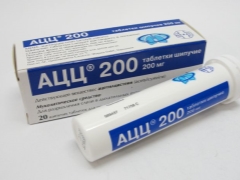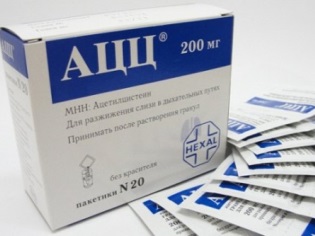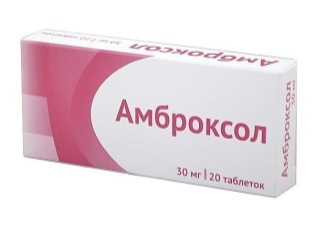ATCS 200 powder for children: instructions for use
One of the most popular mucolytic drugs is ACC 200, so it is often prescribed for coughing with viscous sputum. But is this medicine suitable for children?
Release form
ACP 200 is produced in two forms:
- The powder packaged in portion packs weighing 3 grams. It is represented by homogeneous white granules that smell of honey and lemon. Also on sale is orange powder. One pack contains 20 packets of medication.
- Effervescent tablets. The manufacturer offers packs of 20 such white round tablets with blackberry flavor.
Composition
The active ingredient in ACC 200 is acetylcysteine, which each tablet or each portion packet contains, as the name implies, 200 mg. The ACC 200 powder also includes sucrose, sodium saccharinate, ascorbic acid, and flavors (lemon and honey). In addition to vitamin C and orange flavoring, orange granules contain saccharin and sucrose for a sweet taste.
Additional substances in tablets are represented by citric acid, milk sugar, bicarbonate, saccharinate, citrate and sodium carbonate, mannitol, ascorbic acid, and blackberry flavoring.
Promotional video of the drug ACC see below:
Operating principle
The main action of acetylcysteine, which is contained in ACC 200, is mucolytic. Such a substance directly affects sputum in the respiratory tract, changing its rheological properties. This is due to the ability to break the bonds of mucopolysaccharides in sputum, resulting in a decrease in viscosity of secretions. In this case, the drug does not lose activity, even if pus is present in the sputum.
Also, acetylcysteine has antioxidant properties, because it can neutralize oxidative radicals and stimulates the formation of glutathione. The result of this action will be increased cell protection and a decrease in the intensity of inflammation.
Video production of the drug ACC 200:
Can I give to children?
Instructions for use clarifies that the use of acetylcysteine is allowed from the age of two. In this case, a single dose for children under 6 years old is usually 100 mg of the active substance, so you have to divide the bag or tablet in half. The drug ACC 200 is designed for age over 6 years.
Indications
Doctors prescribe the ACC 200 if necessary to improve the sputum and thin it. The drug is prescribed in children with:
- Pneumonia.
- Bronchiolitis or bronchitis.
- Chronic lung diseases, including obstructive.
- Bronchiectasis.
- Average otitis.
- Sinusitis.
- Cystic fibrosis.
- Abscess in the lung.
Contraindications
The drug can not be taken in such situations:
- If the child has intolerance to acetylcysteine or other components of the medication.
- If peptic ulcer has worsened.
- If blood is detected in sputum.
- If the baby has a glucose-galactose malabsorption.
- If pulmonary hemorrhage is detected.
Prescribing medication requires increased attention from the doctor if the child has bronchial asthma, high blood pressure, diseases of the kidneys, adrenal glands or liver. Granules should not be given to children with fructose intolerance or lack of sucrase.
Effervescent tablets are contraindicated for lactose intolerance or lack of lactase.
Side effects
- ACC 200 may provoke allergieswhich is manifested in children by a skin rash, decreased blood pressure, itching, swelling, urticaria or tachycardia. An anaphylactic reaction is very rare.
- The respiratory system of children may respond to ACC by dyspnea, and in bronchial asthma, the medicine causes bronchospasm.
- In some children, the digestive system may be affected by AC what is manifested by dyspepsia, heartburn, nausea, loose stools, stomatitis, vomiting, or abdominal pain.
- Occasionally admission ACC provokes headaches, tinnitus, fever or bleeding.
Instructions for use and dosage
ACC 200 powder must be diluted and given to the child after a meal. For one sachet take half a glass of liquid, which can be represented not only water but also cool tea or juice. Effervescent tablets are diluted with water only.
The prepared solution should be drunk soon after preparation. Due to the presence of ascorbic acid in the composition, the diluted drug can be stored for up to two hours after it is diluted with liquid.
The dose of medication will depend on age:
- At 2-6-year-old child give 200-300 mg of acetylcysteine per day. Since the daily dosage is divided into 2 times, the single dose will be 100-150 mg. In most cases, at one time, half of an ACC 200 bag. If tablets are used, then for a child under 6 years old, break an effervescent tablet into halves and mix only 1/2 of the water. However, at this age it is more convenient to use the drug ACC 100.
- At the age of 6-14 years, 300-400 mg of acetylcysteine will be a daily dosage.therefore, a single dosage is most often represented by a whole sachet or a whole effervescent tablet ACC 200, and the medicine is taken 2 times a day.
- Children over 14 years old are given 400-600 mg of acetylcysteine, dividing this dosage into 1-3 doses. At this age, the use of medication is permissible. ACC Long.
The duration of treatment of the ACP 200 should be determined by the doctor, but in case of acute pathologies without complications, the drug is often prescribed for 5-7 days.
Overdose
If the dosage of the ADC for a child is too large, the baby’s body will react to the drug with nausea, loose stools or vomiting. Help in this situation can symptomatic therapy.
Interaction with other drugs
- Dissolving tablets or ACC powder in the same glass with any other medicines is not recommended.
- When taking activated carbon, acetylcysteine activity will decrease.
- It is unacceptable to prescribe ADC 200 and any antitussive drugs, as the oppressed cough reflex can cause mucus stagnation in the bronchi.
- With the appointment of ACC and bronchodilator their effectiveness increases.
- Some antibiotics (cephalosporin, penicillin, tetracycline) lose their antimicrobial activity when interacting with acetylcysteine, so a pause should be made between these drugs, taking them at least 2 hours apart.
- The simultaneous appointment of ACC 200 and nitroglycerin or other vasodilators causes a more pronounced vasodilating effect.
Terms of sale
To purchase ACC 200 at a pharmacy, a doctor's prescription is not required. The average cost of packaging with 20 bags is 130 rubles.
Storage conditions and shelf life
The temperature at the storage site of the ACC 200 should not exceed + 25 ° С. ACP 200 bags have a shelf life of 4 years from the date of issue, and effervescent tablets - only 3 years. After removing the effervescent tablet from the tube, check the tightness of the packaging.
Reviews
About the drug ACC 200 leave mostly positive reviews. Moms who gave such a drug when coughing babies, noted a rather high efficiency and low frequency of side effects. The tool facilitates the excretion of sputum and accelerates recovery. The taste does not cause a protest in most children.
Analogs
Instead of ACC, you can use other drugs with the same main component, for example, a Swiss remedy. Fluimucil or domestic drug Acetylcysteine. It is also possible to replace other drugs with mucolytic effect, for example, drugs carbocysteine or ambroxol.




















